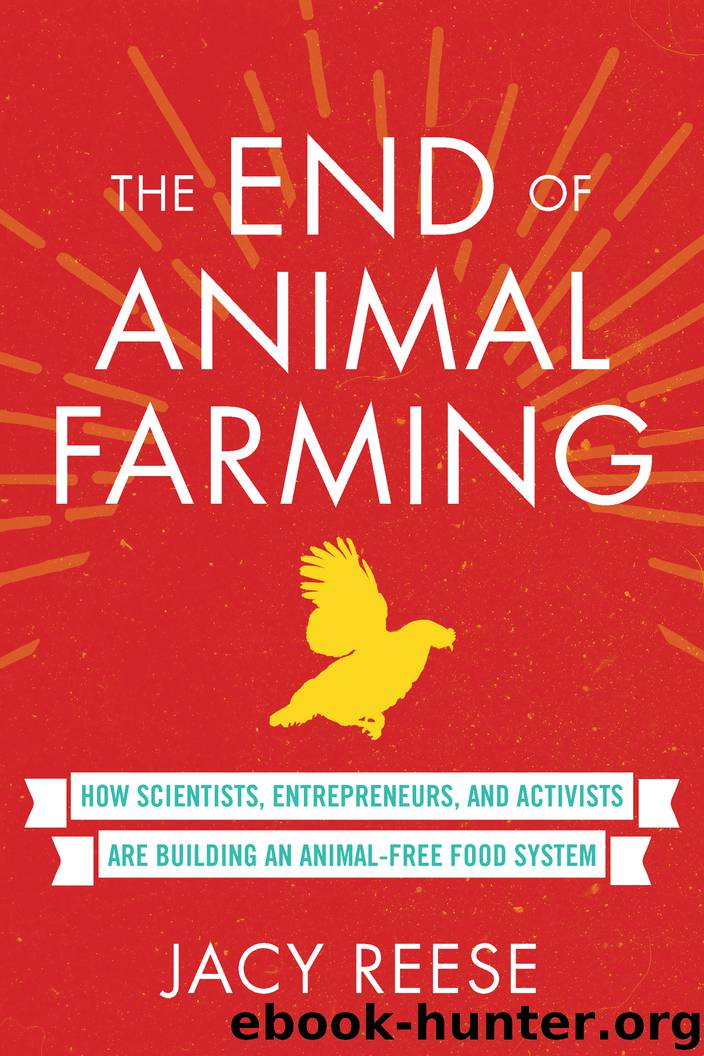The End of Animal Farming by Jacy Reese

Author:Jacy Reese
Language: eng
Format: epub
Publisher: Beacon Press
Psychological refuge
Every grassroots farmed animal advocate I’ve asked about this topic has spoken with many people who insist that the meat they buy doesn’t come from factory farms. “I only eat humane meat,” they say, defending themselves from the activists’ critiques of factory farming. This is one of the most common justifications heard by grassroots advocates.
Is it valid? Consider that, by the best estimates we have, over 90 percent of animals in the global food system (over 99 percent in the US) are in factory farms.31 Could it really be the case that so many consumers are discerning enough to ensure that most or all of the animals they consume are from the few specialty farms that, as we saw above, might or might not even actually be ethical? It’s very unlikely. In fact, a survey my colleagues and I conducted in 2017 suggested that 75 percent of US adults say they usually consume humane animal products, which seems impossible given that the best estimates suggest less than 1 percent of US farmed animals live on nonfactory farms.32
This is also supported by advocates’ experiences with these well-meaning people who believe the animals they eat were happy. Advocates often ask the person about their recent consumption choices: What did they have for breakfast? Scrambled eggs. Where were the eggs from? The college cafeteria. What do you know about their sourcing? They’re cage-free. But that’s a far cry from humane treatment.
Usually at this point, the uncomfortable consumer will bring up the few instances where they actually buy from specialty farms, such as beef patties from the farmers’ market, but this is a small fraction of their total consumption, and they have done little investigation of the ethics of those farms, instead just relying on a label saying something like “cage-free” or “humanely raised.” And most don’t even think about other considerations, like what they eat in restaurants or whether they consume fish, virtually none of whom live on farms that even claim to be high-welfare.
Many thoughtful vegans actually got their start trying to be ethical omnivores. One college student, Jay Shooster, tried to do this by adding a farm husbandry course to his curriculum and approaching local farmers with a list of cruel practices. He asked the farmers which, if any, they employed and was disappointed by the results every time. This led Shooster to go vegan, and he now works as an animal activist.33
When people call upon the idea of ethical animal farming—even if that constitutes little or none of their actual consumption—we can think of it as a “psychological refuge” they’re using to justify their consumption of factory farmed products. This refuge shelters them from the cognitive dissonance they would feel if they both fully considered their ethical views and the realities of their consumption choices. It’s one of the biggest roadblocks to fixing our food system, perhaps even more harmful than the four N’s.
When we look at successful social movements, they had simple demands. Abolish slavery. Votes for women. The antismoking movement didn’t tell people to “avoid cigarettes produced by big corporations.
Download
This site does not store any files on its server. We only index and link to content provided by other sites. Please contact the content providers to delete copyright contents if any and email us, we'll remove relevant links or contents immediately.
The Lonely City by Olivia Laing(4799)
Animal Frequency by Melissa Alvarez(4467)
All Creatures Great and Small by James Herriot(4311)
Walking by Henry David Thoreau(3955)
Exit West by Mohsin Hamid(3824)
Origin Story: A Big History of Everything by David Christian(3689)
COSMOS by Carl Sagan(3618)
How to Read Water: Clues and Patterns from Puddles to the Sea (Natural Navigation) by Tristan Gooley(3466)
Hedgerow by John Wright(3356)
How to Read Nature by Tristan Gooley(3336)
The Inner Life of Animals by Peter Wohlleben(3313)
How to Do Nothing by Jenny Odell(3295)
Project Animal Farm: An Accidental Journey into the Secret World of Farming and the Truth About Our Food by Sonia Faruqi(3219)
Origin Story by David Christian(3196)
Water by Ian Miller(3181)
A Forest Journey by John Perlin(3069)
The Plant Messiah by Carlos Magdalena(2927)
A Wilder Time by William E. Glassley(2859)
Forests: A Very Short Introduction by Jaboury Ghazoul(2836)
